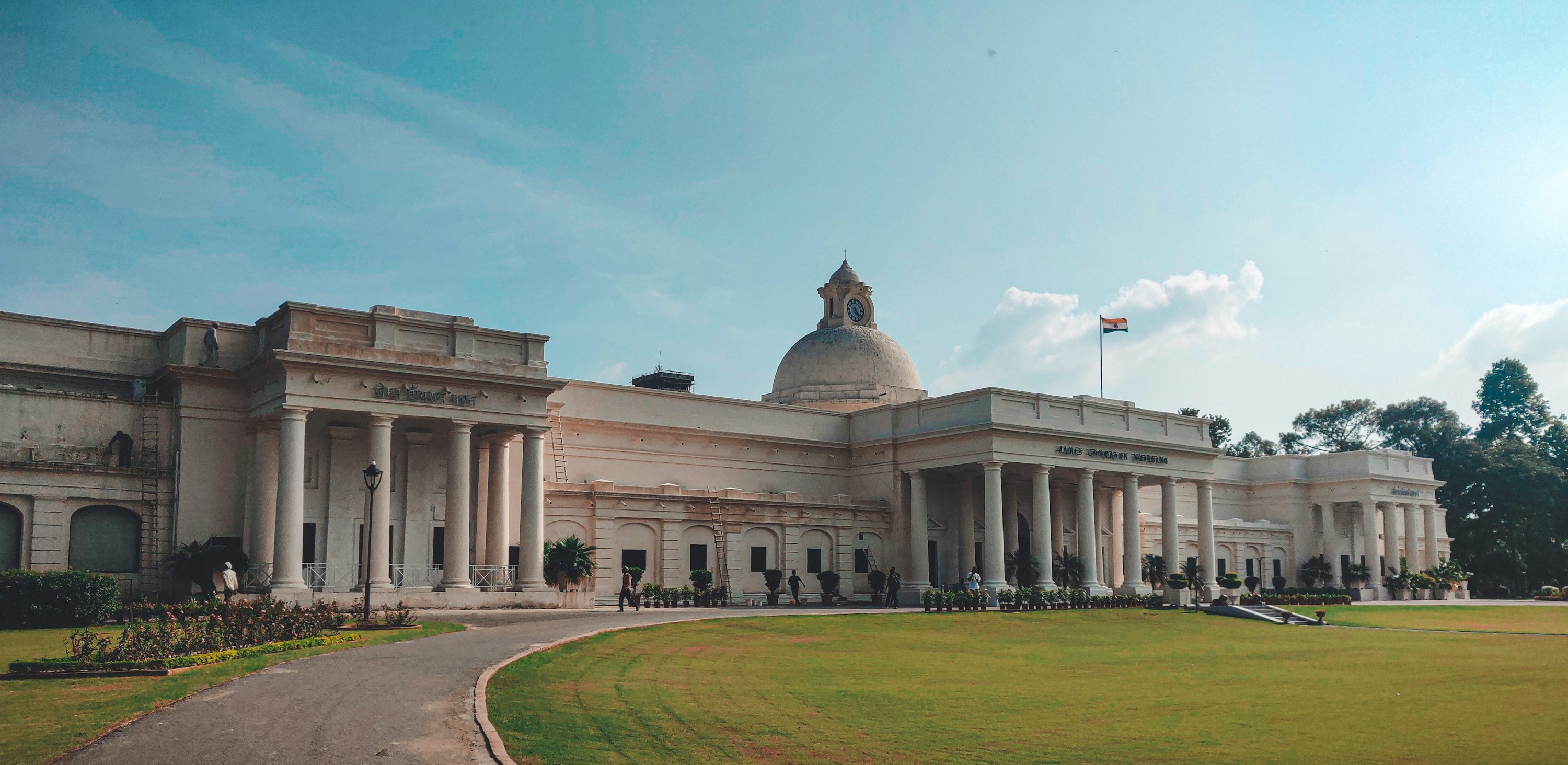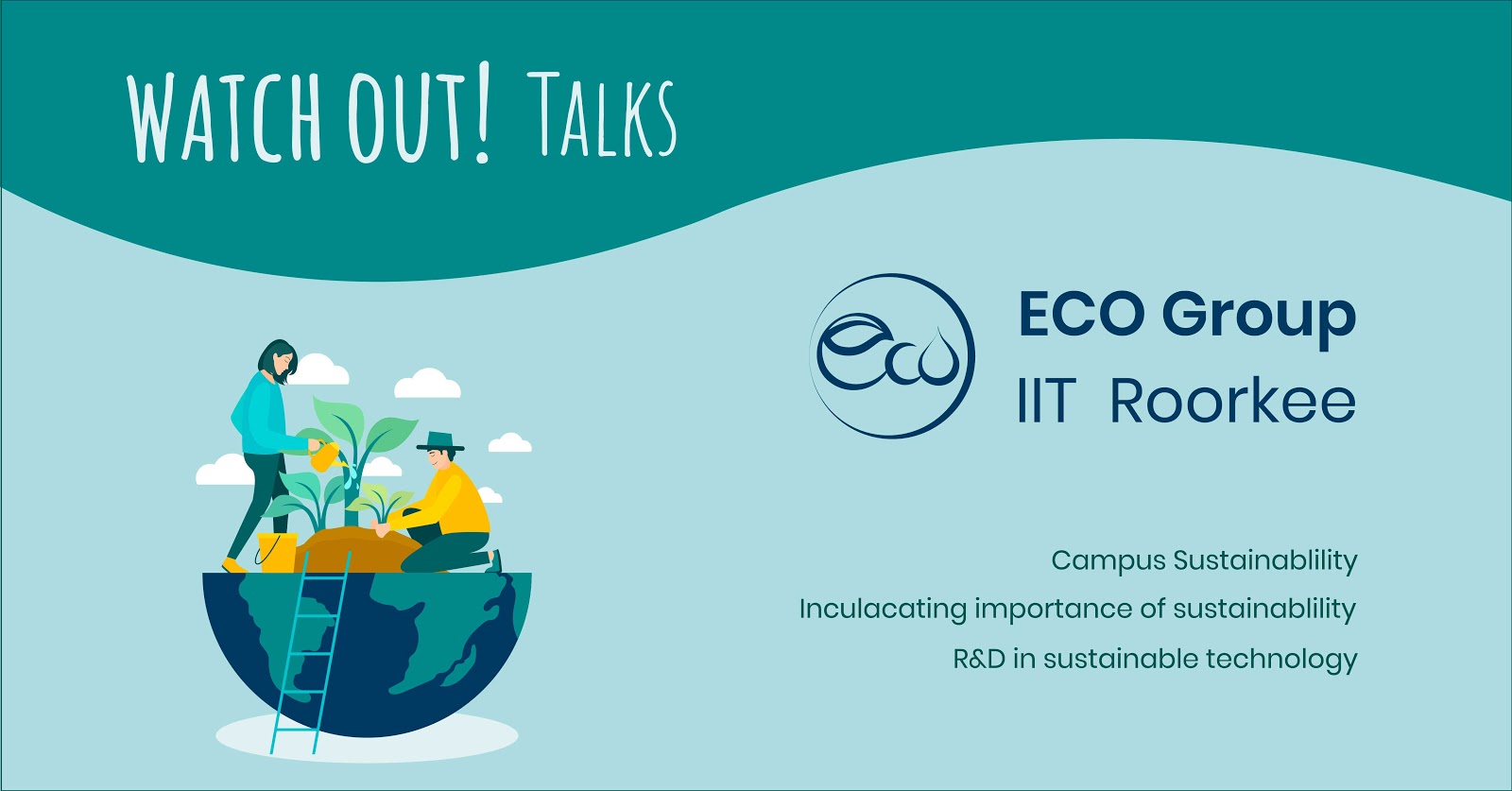

Body of IITR

Eco Group, IIT Roorkee is a group of enthusiastic trendsetters working together to integrate sustainability in IIT R and inculcate Green Living in the campus community. The group functions under the aegis of the Institute Green Committee. Their vision is to bring sustainability to the campus by brainstorming new ideas which reduce the carbon footprint of the campus by reducing the unnecessary usage and reusing and recycling resources wherever feasible.
Watch Out! spoke to the members of the ECO Group:
“The idea for the group came up during the lecture class of environmental engineering when the professor was informing us about how nature is being devastated by our reckless actions. We together observed that the very place where we live required some changes. The first rudimentary problem we observed was lack of Integrated Solid Waste management on our campus. Segregation of waste at source was lacking on the campus. We developed a model to segregate, transport and treat the waste generated and proposed to install separate bins for inorganic and organic waste inside hostels. The proposal was accepted by the Institute Green Committee whose chairman is the institute Director. Currently, the bins have been installed at Rajendra Bhawan, and have been planned to be installed in other locations in the campus as well. The Organic waste collected will be used to make compost with the help of Rotary dump composter in the institute, while the inorganic waste will be sent for recycling. The second basic problem which we discovered was no management for Electronic waste. At present, separate bins have been installed all around the campus especially for Electronic waste by an electronic waste recycling company.”
The ECO Group also conducted an enlightening series on Sustainability for the IITR junta, which was received with great appreciation. The series saw three prominent figures in the field of sustainability and waste management share their experiences and knowledge.
The first talk was delivered by Ms Saloni Goel, an alumna of IIT Delhi and the London School of Economics. She led the sanitation work during Kumbh 2019, delivering an open defecation free, garbage-free, and odour-free mela. She won a Guinness World Record for undertaking massive sanitation. She is currently engaged as a Climate Change Specialist with the NITI Aayog. The event was also graced by Professor Barzley of London School of Economics, who helped Ms Goel document her work for the Kumbh. About sustainable solutions, she said “Developing a technical solution is the first step in solving a problem. You’ve to go ahead and connect to the ecosystem so the solution is accepted and implemented.” Ms Goel emphasised on the importance of source segregation of waste. In a poll conducted during the talk, most people agreed with the concept. However, the majority of those who were polled weren’t aware of the different bins for different wastes.
“Waste management is still an unorganised sector - the ragpickers, kabadiwalas should be taught about safe and healthy waste management practices. Their health should be a priority. Proper waste management systems also generate jobs, in addition to being eco friendly. Though gradually, the government is working towards integrating proper waste management in the smart city models.”
The second speaker was Mr Prabodha Acharya, Chief Sustainability Officer of Jindal Steel Works, and an alumnus of IIT Kharagpur. He gave us a glimpse of the definition of sustainability for the corporate sector. He emphasised their vision of Economic, Social and Corporate governance, their ideology of meeting everyone’s needs and not compromising on the future requirements. “Corporate sectors should focus on reducing their consumption of harmful plastics and improving their product’s sustainability,” he said.
When asked about the idea of zero waste, he mentioned how it is technically not feasible to always recycle or possible to avoid by-products and treating them as feeders for other products is the most sustainable way to go.
On how sustainability affects business, he said “Sustainability boosts business growth - sustainability optimises the resources. Industries can produce more with less resources through a sustainable thought process.”
For the third event, Mr Ashish Sachdeva of Green Dream Foundation gave a presentation on Waste Management in India. He has given talks in Global Conference of Waste Management & Recycling (Vigyan Bhawan, New Delhi), Global CSR Summit 2019 (Sarawak, Malaysia), and had also visited IIT Roorkee for iFest(2012) previously. He provided us with a lot of insights on the prevailing waste management issues in the country and the statistics of India as compared to other countries. Mr Sachdeva also discussed innovations using plastic in building roads, and the new EPR (Extended Producer Responsibility) policy which will strengthen waste management policies making companies responsible for the recycling of plastic they produce. He also warned against feeding mixed waste into waste-to-energy plants, as they lead to the formation of toxic by-products which cause pollution.